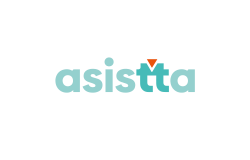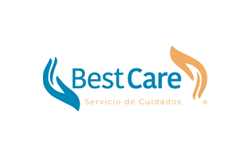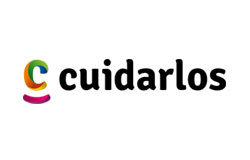
We reviewed over 200 businesses worldwide*, and have identified over 165 businesses operating in the care economy across Latin America, Sub-Saharan Africa and Asia who met the following 4 criteria:
1. Geography focus: operating in project target countries.
2. Care economy impact: business activities recognize, reduce, reward or redistribute care work.
3. Proof of concept: care economy activities at least at the launch stage (none of the businesses are at concept stage).
4. Market-based intervention: already or planning to be financially profitable or to generate income in the medium term.
Out of the mapping we selected 60 businesses to conduct a full profile and showcase potential investment opportunities. These profiles have been created from information and data provided by the business itself. Use the filter on the left to access the businesses profiled.
* Disclaimer: The data presented in the business mapping and profiles is based on information provided by the businesses and has not been independently verified
1. Geography focus: operating in project target countries.
2. Care economy impact: business activities recognize, reduce, reward or redistribute care work.
3. Proof of concept: care economy activities at least at the launch stage (none of the businesses are at concept stage).
4. Market-based intervention: already or planning to be financially profitable or to generate income in the medium term.
Out of the mapping we selected 60 businesses to conduct a full profile and showcase potential investment opportunities. These profiles have been created from information and data provided by the business itself. Use the filter on the left to access the businesses profiled.
* Disclaimer: The data presented in the business mapping and profiles is based on information provided by the businesses and has not been independently verified
Filter Your Results
Asistta
Website: www.asistta.com
Headquarters: Colombia
Country of Operations: Colombia
Women owned / led: Founded by at least one woman, At least 51% owned by women, At least 30% women in senior leadership positions, At least 30% of women in board of directors

About the organization: Asistta is a Colombian platform that connects health professionals with users who require home services, medicine administration, physiotherapy, respiratory therapy, psychological services, nutrition, speech therapy, and nursing. Around 90% of its workforce are women. The Asistta platform is focused on supporting informal caregivers to enter the economy through an academic support network. In addition, it provides caregivers with the necessary training to enter the labor market by giving them the possibility of learning from home.
Stage of Growth: Small scale roll-out/Early stage
Types of Services: Infant-care (children younger than 1-year), Elderly-care (Ages 60 and above), Care for persons with special needs (disabled / differently abled persons), Care for people with illnesses
Activities in the care economy: Provision of technology & services that train/upskill domestic & care workers (e.g. technology that links employers to domestic/care workers), Provision of technology, services & policies/practice that improve condition for domestic & care worker (e.g. apps that calculate decent remuneration), Provision of affordable services that provide care & domestic work (e.g. affordable daycare services in rural areas)
Pathway to impact: Reward, Redistribute
Best Care
Website: www.bestcarelatam.com
Headquarters: Uruguay
Country of Operations: Uruguay, Colombia, Costa Rica, Honduras, Other Countries
Women owned / led: Founded by at least one woman, At least 30% women in senior leadership positions

About the organization: Best Care’s mission is to improve the quality of people´s lives. Best Care has a network of caregivers in several countries around the world that provides care, assistance, and support services to people, both in hospitalization and at home. Best Care’s commercial models are affordable to all population segments. They offer services with an innovative commercial model, focused on B2B and B2C.
Stage of Growth: Mass roll-out/Expansion
Types of Services: Infant-care (children younger than 1-year), Child-care (Ages 1 to 5), Child-care (Ages 6 and above), Elderly-care (Ages 60 and above), Care for persons with special needs (disabled / differently abled persons), Care for people with illnesses
Activities in the care economy: Provision of technology & services that train/upskill domestic & care workers (e.g. technology that links employers to domestic/care workers), Provision of technology, services & policies/practice that improve condition for domestic & care worker (e.g. apps that calculate decent remuneration), Provision of affordable time and labour saving technology and products (e.g. product that makes washing, cooking more efficient), Provision of affordable services that provide care & domestic work (e.g. affordable daycare services in rural areas), Awareness raising on the care economy through marketing, information campaigns & programmes that raise awareness & increase motivation
Pathway to impact:
Redistribute, Reduce, Reward
Redistribute, Reduce, Reward
Cuidarlos
Website: www.cuidarlos.com
Headquarters: Argentina
Country of Operations: Argentina
Women owned / led: None

About the organization: Cuidarlos provides innovative solutions for the care of the elderly and people with disabilities, connecting and managing families, patients, and caregivers in an agile, fast and safe way, without intermediaries. Their mission is to create an ecosystem that guarantees access to the best care for people, that provides opportunities for those who have a vocation for service to stand out, and that is a means to manage and efficiently independent life in homes to significantly improve the quality of those who take part.
Stage of Growth: Small scale roll-out/Early stage
Types of Services: Elderly-care (Ages 60 and above), Care for persons with special needs (disabled / differently abled persons)
Activities in the care economy: Provision of technology & services that train/upskill domestic & care workers (e.g. technology that links employers to domestic/care workers), Provision of affordable services that provide care & domestic work (e.g. affordable daycare services in rural areas)
Pathway to impact: Reduce, Redistribute
Lazarillo
Website: www.lazarillo.app
Headquarters: Chile
Country of Operations: Chile, Other Countries
Women owned / led: None

About the organization: Lazarillo is a Chilean app that helps people with visual disabilities to improve their independence with information on their routes to access physical or digital services. Lazarillo addresses the lack of affordable solutions to reduce the amount of time spent on care and domestic work by improving the well-being and independence of people with disabilities. They have benefited more than 400,000 people by delivering a simple platform that made it easier for people to have traveled more than 6000 times around the world independently.
Stage of Growth: Mass roll-out/Expansion
Types of Services: Care for persons with special needs (disabled / differently abled persons)
Activities in the care economy: Provision of technology & services that train/upskill domestic & care workers (e.g. technology that links employers to domestic/care workers)
Pathway to impact: Reduce
